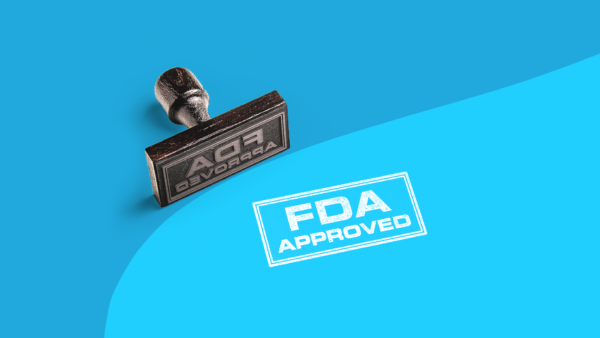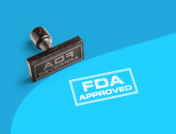When you have a bacterial infection, like strep throat or a urinary tract infection, an antibiotic is often the solution to the problem. The antibiotic eliminates the bacteria causing your symptoms. With a tooth infection, also known as a dental abscess or abscessed tooth, you may need an antibiotic and an additional procedure—depending on how severe the situation is. Here’s what you need to know if your dentist diagnoses you with a tooth infection.
What is a tooth infection?
A common tooth infection is a pocket of pus, also known as an abscess, caused by bacteria. According to the International Journal of Dentistry, tooth infections can occur as a result of cavities or tooth decay, trauma to the tooth, periodontal diseases, or poor oral hygiene, among other causes.
If you have an infected tooth, you may notice symptoms such as:
- Toothache
- Throbbing in the jaw, neck, or ear
- Fever
- Tooth pain with chewing
- Sensitivity to hot and cold foods
- Foul odor in the mouth
It’s important to treat a tooth infection promptly. If left untreated, the infection can spread to the bones surrounding the tooth, your jaw, or other areas.
When are antibiotics used for a tooth infection?
The goal of dental treatment for an infected tooth is to eliminate the bacteria and save the tooth. To do that, your dentist may prescribe oral antibiotics along with performing a procedure to drain the abscess, perform a root canal to remove infected tissue within the tooth, or extract the tooth. Intravenous antibiotics may be given if you have:
- Symptoms of systemic infection, like a fever or fatigue
- A weakened immune system
- A serious underlying health condition
Apart from these situations with an active infection, antibiotics can also be given in dentistry to prevent infection. For example, some heart patients are prescribed antibiotics before undergoing dental work to prevent infection-causing bacteria in their mouths from traveling to their hearts. However, preventive (or prophylactic) antibiotics to ward off potential infections are not given as commonly as they once were. According to the American Dental Association (ADA), recent guidelines have reduced the groups of patients for whom antibiotic prophylaxis is recommended.
Before prescribing an antibiotic, your dentist will consider several factors. “Dental health providers evaluate the need and a patient’s medical and dental history and weigh risks with prescribing medication,” says Kate Zoumboukos, DMD, a dentist at SW Austin Dental in Austin, Texas.
Not all types of tooth infections require antibiotics. If your dentist does not recommend an antibiotic, there’s a reason for that, explains Amelia Hartzell, DMD, a dentist with UTHealth Houston School of Dentistry in Texas.
“Unnecessarily taking antibiotics actually leads to resistance to the antibiotics and more difficulty treating these infections in the future,” Dr. Hartzell says.
Which antibiotics are good for a tooth infection?
The first-line treatment for a dental infection is usually amoxicillin unless you’re allergic to penicillin. The second-line therapy for a tooth infection, if you are allergic to the penicillin class, is typically clindamycin, cephalexin, or azithromycin. If amoxicillin or azithromycin don’t work, your dentist might add on a different antibiotic, such as metronidazole. Another possibility is that your dentist might prescribe amoxicillin with clavulanic acid, commonly known by the brand name Augmentin. “It’s just a little bit stronger, and it treats a broader range of bacteria,” Dr. Hartzell says.
Dentists typically choose antibiotics based on the current ADA guidelines, the type of bacteria causing the infection, and your medical history.
How long do antibiotics take to work for a tooth infection?
If your tooth infection requires antibiotics to treat it, a typical course would be three to seven days. Depending on the antibiotic, you will likely take a dose one to four times a day.
For example, a typical course of oral amoxicillin is 500 mg, three times per day for three to seven days, according to the ADA. With oral azithromycin, you start out with a 500 mg dose on the first day. After that, you’ll take 250 mg per day for an additional four days.
Once your dentist prescribes an antibiotic for your tooth infection, it’s important that you take the entire course of the antibiotic as prescribed. You may feel better before you finish taking the entire course, but it is best to complete the treatment course that your healthcare provider recommends. In recent years, the duration of recommended antibiotic courses has been shorter, still providing good effectiveness and possibly leading to less drug-resistant bacteria.
Are there over-the-counter remedies for a tooth infection?
“There are no home remedies or watch-and-wait strategies that will effectively treat a tooth infection,” Dr. Hartzell says. “You have to control the source of the infection with treatment. That’s like the first line.”
In other words, you likely can’t avoid a trip to the dentist. However, you can find pain relief over the counter with painkillers such as ibuprofen or acetaminophen.
Tooth infection prevention
Of course, it’s better to avoid getting a tooth infection to begin with. That’s why prevention is important. Good oral hygiene is a key component of that because poor oral hygiene is a very common cause of tooth infections, according to Dr. Hartzell.
Your best bet when it comes to tooth infection prevention—and good overall oral health—includes these strategies:
- Brush your teeth twice a day
- Use fluoride toothpaste
- Floss daily
- Use a mouthwash or mouth rinse that contains fluoride
- Seek regular dental care (usually every six months, but it can vary)
“Incorporation of an electric toothbrush or oral irrigator may be helpful, especially with dexterity challenges or hard-to-reach places in your mouth,” Dr. Zoumboukos says.
The bottom line: Try to prioritize good dental health, and you may be able to ward off tooth infections. However, if you do notice that something seems off, see your dentist as soon as possible. If you do have a tooth infection, your dentist can discuss the best treatment options for you—and whether you may need a course of antibiotics.
Sources
- Tooth abscess, Mount Sinai
- Antibiotic therapy in dentistry, International Journal of Dentistry (2021)
- Some heart patients need antibiotics before dental work, Harvard Health Letter (2022)
- Antibiotic prophylaxis prior to dental procedures, American Dental Association (2022)
- Amoxicillin and clavulanic acid, U.S. National Library of Medicine (2018)
- Evidence-based clinical practice guideline on antibiotic use for the urgent management of pulpal- and periapical-related dental pain and intraoral swelling: A report from the American Dental Association, American Dental Association
- Antimicrobial resistance: Does stopping a course of antibiotics early lead to antibiotic resistance? World Health Organization (2020)
- What is a root canal? American Association of Endodontists











